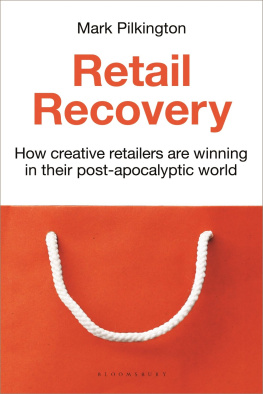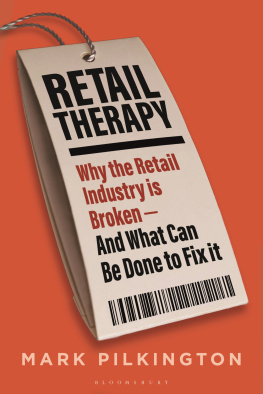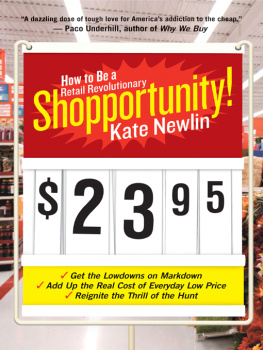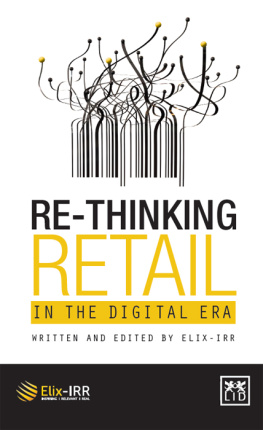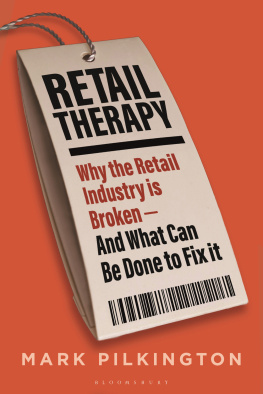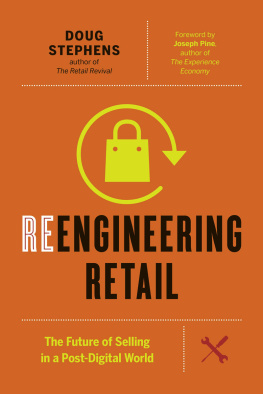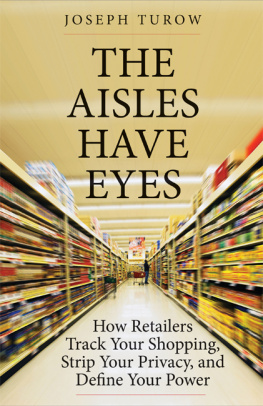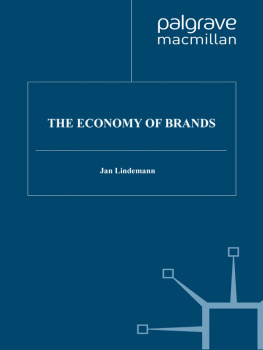This is the story of how successful retailers have moved towards solving problems for people and enhancing their lives. How they think about their stores will never be the same again. If you want to understand the dramatic acceleration of change brought about by COVID-19 then read Mark Pilkingtons excellent book and be optimistic about a highly innovative and entrepreneurial future.
Lord Hague of Richmond, Former UK Secretary of State for Foreign and Commonwealth Affairs
I always learn something from Marks books. This one is full of brilliant insights. A must read for any retailer.
Mary Portas, Retail Expert, Chief Creative Officer at Portas
Retail Recovery is a fascinating book explaining why we should be excited about the future of shopping, even as we wring our hands over the fate of high streets and shopping malls. Forget the retail apocalypse. This is the inside story of its rebirth.
Henry Tricks, Schumpeter Columnist, The Economist
Whats incredible about Marks book is its a full survey of nearly everything going on: an ambitious undertaking and one that lights the way on the future of retail in a post-COVID world. If you want to know where were headed next in the world of brands and retailers, youve got to read Marks audacious book.
Andy Dunn, Co-Founder Bonobos, Red Swan Ventures, Monica & Andy, Stealth Company; former EVP Digital Consumer Brands, Walmart
Mark hits the nail on the head. For too long we have been stuck in the push mindset of physical retail and selling, rather than as Mark states the pull mindset of radical thought, building our retail offers so that customers actively would want to come and visit them as a part of an omnichannel relationship with retailers and brands.
Fraser Brown, Retail & Property Director, Heathrow Airport
The pandemic has accelerated the pace of change in retail. But the future cannot lie only in the endless aisle of online. Consumers want the emotional connection and excitement of physical stores. This book gives you hope that there are retailers who can provide this creating jobs as part of the adventure.
Anne Ashcroft, Property and Finance Writer and Commentator; former Editor of The Times Bricks & Mortar
Some excellent insights into how retailers can take advantage of the chaos caused by the Coronavirus outbreak an indispensable guide to those looking to understand the post-apocalyptic world.
Hannah Middleton, Knowledge Exchange Lead at London College of Fashion and Fashion Business Consultant
I would like to thank my agent, Andrew Hayward, for his tireless enthusiasm in promoting my ideas, and my publisher, Ian Hallsworth at Bloomsbury Business, for believing in the potential of my work. I would also like to thank my family for their love and support in writing this book.

Contents
On 23 March 2020, the British government announced the shutdown of all non-essential retailing in response to the threat from the Coronavirus the new pandemic, which had been sweeping around the world since the beginning of the year. The United States did not order a federal lockdown, but nevertheless, from mid-March, many key states, such as New York, New Jersey and California, started to do so. The news was not entirely unexpected: new cases and deaths from the COVID-19 virus had been rising sharply in the preceding weeks and people had watched as countries such as China, Italy and Spain had started to close down their economies.
These announcements caused great consternation in the boardrooms of the major retail groups in both the UK and the US. Those retailers lucky enough to have food businesses, such as Marks & Spencer, John Lewis & Partners, Walmart and Target, would be somewhat protected, but those in non-essential categories faced the prospect of a catastrophic loss of sales.
The virus also separated the leaders from the laggards in terms of internet-readiness. For those retailers that had had the foresight to create substantial online businesses, e-commerce would potentially provide some mitigation. For example, UK fashion retailer Next had spent the previous 20 years building up its e-commerce sales to 50 per cent of its business and after a brief shutdown to virus-proof its warehouse, it was able to keep trading.
As the worried people of Britain and America hunkered down in their homes, their chief immediate concern was for their food supply. Panic buying had stripped the stores of essentials like toilet paper, bleach and toothpaste and durable foodstuffs such as flour, rice and pasta, and although there appeared to be fresh foods still available, no one had any idea how long this would continue. In the event, the food retailers and their suppliers were to do a great (and largely unsung) job of keeping the lifeline going. However, as the number of daily deaths exploded over the next few weeks into the thousands, large numbers of people became anxious about going to the stores at all. Many turned to buying online, and vulnerable people had to be helped out by their neighbours or by local shops, which created special times for them to visit.
The rise of online
Into the gap left by the retailers sailed the online companies. After an initial stutter, as their websites were briefly overwhelmed by the high volume of transactions, they managed to increase their capacity rapidly and more and more households learned to rely on the delivery services offered by Amazon Fresh, Instacart, Tesco and Ocado.
The grocery sector had traditionally lagged the rest of the market in moving online. Prior to the crisis, in 2018, UK online sales of grocery represented only 7 per cent of the market, according to Mintel, versus e-commerces overall share of retail, which was at 18 per cent.
In the non-grocery area, the switch to online was even more marked. For example, in fashion, e-commerce increased its market share by almost three times, as most of its retail rivals were forced to shut down completely. Many consumers became used to the convenience of home delivery, forming new habits that would be difficult to break.
As people sweltered in their homes amid the unseasonably hot weather of the summer of 2020 (Typical! said the Brits), figures started to emerge that showed the true extent of the devastation that had been created in the high streets and the malls.
The damage to retail
UK retail sales dropped 4 per cent versus the previous year in March 2020 and then a record 18 per cent in April at the height of the initial lockdown.
One by one, the news came in of a series of disastrous bankruptcies in the UK retail sector Debenhams, Oasis, Warehouse, L.K. Bennett, Laura Ashley and Cath Kidston, to name but a few.
Other major players, such as the UKs Arcadia Group Limited (parent company of High Street stalwarts such as Topshop, Dorothy Perkins and Burton, which was owned by Sir Phillip Green), appeared to be wavering on the brink (by the end of November 2020, it too would join the ranks of businesses going into administration). Even previously strong retailers were coming under pressure. For example, L Brands sale of Victorias Secret to Sycamore Investments fell through and John Lewis announced that they would probably not reopen all their stores after the initial lockdown ended.
The impact on brands and landlords
And it was not just the retailers who were suffering. There were many other businesses that depended on retailing, such as branded suppliers, manufacturers and marketing agencies, many of which were severely affected.

